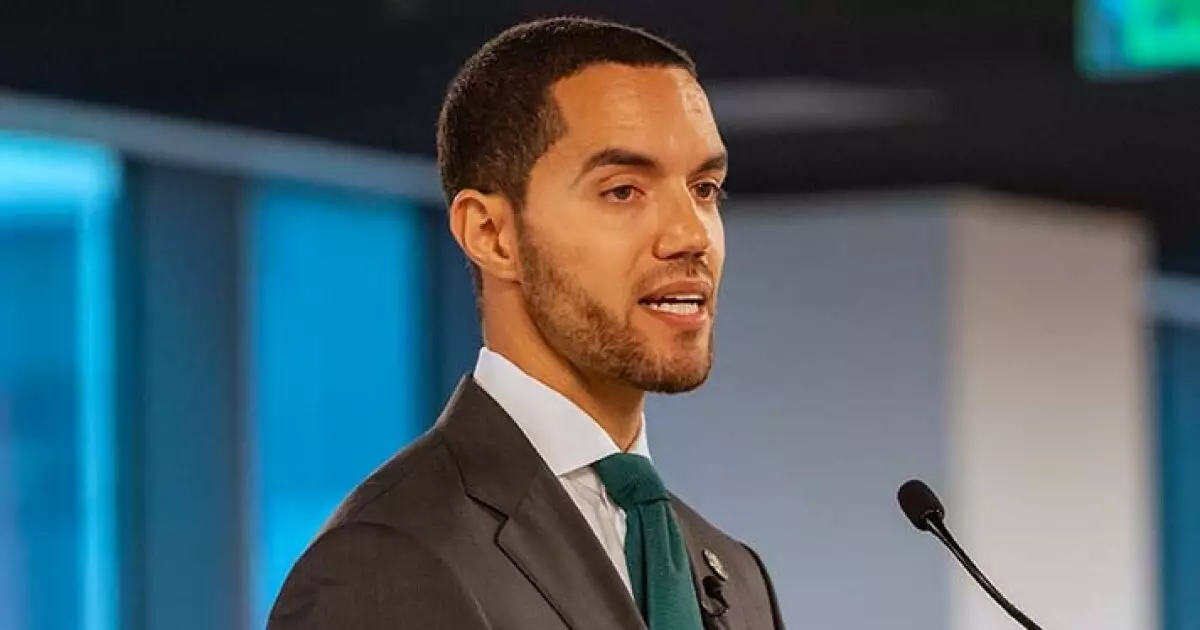In the vibrant city of Houston, tensions have escalated dramatically between Mayor John Whitmire and City Controller Chris Hollins over the organization of an upcoming investor conference that has raised eyebrows. At the heart of the controversy lies the solicitation of sponsorships from municipal bond firms, with amounts ranging from $10,000 to $100,000. While sponsorships can often help facilitate such events, the scrutiny surrounding this particular instance has led to serious allegations from Whitmire, who views the potential for pay-to-play practices as detrimental to the integrity of city operations.
Whitmire’s concerns extend beyond mere appearances; he believes that the involvement of bond underwriting firms—particularly firms already in business with the city—could create conflicts of interest and undermine the credibility of the municipal bond process. During a press conference, he expressed the belief that this situation could lead to violations of ethical standards and regulatory guidelines set forth by the Securities and Exchange Commission (SEC). He emphasized that in prior years, investor conferences in Houston had managed to operate without corporate sponsorships, thus maintaining a level of transparency and fairness that he believes is being compromised now.
Contrasting Perspectives on Ethics
Following Mayor Whitmire’s pronounced accusations, Controller Hollins swiftly pushed back, labeling the mayor’s claims as “baseless.” Hollins asserted that the authority to award bond-related contracts lies solely with the mayor and the city council, distancing himself from any improper influence over the selection process of underwriters. In his view, the mayor’s focus on sponsorships is an attempt to deflect attention away from pressing issues within the city, particularly concerning fiscal management that Hollins argues has been poorly handled.
Moreover, Hollins pointed out the hypocrisy of Whitmire’s position when considering that the mayor recently held a State of the City event with a considerable number of sponsors, several of whom operate in the same space as those targeted for the investor conference. This observation raises an essential question regarding consistency in ethical standards applied to city officials’ fundraising efforts. If sponsorships are deemed acceptable for one event yet problematic for another, it begs further exploration into the underlying motivations of the individuals involved.
The rising accusations have prompted the mayor to initiate a formal investigation by Houston’s Office of the Inspector General to examine any potential violations of city ordinances or ethical conduct. By emphasizing the need for investigative scrutiny, Whitmire aims to uphold public confidence in city governance, underscoring his commitment to transparency. The expectation that external law enforcement may be involved adds a layer of seriousness to the mayor’s assertions, indicating a readiness to address any potential criminality associated with the situation.
As the tensions hit a crescendo, the conference is scheduled to take place, albeit without the involvement of the mayor or his senior staff. This decision not only heightens the severity of the rift between the two city leaders but also affects the nature and potential success of the event itself. The implications move beyond the immediate controversy: attendance at the conference and the responses of municipal officials to these developments will be closely watched, as they may reflect broader attitudes towards governance in Houston.
The Houston incident resonates within the greater context of municipal governance across the United States. Other cities have navigated similar waters, often establishing clear guidelines to separate public responsibilities from private interests. The challenges Houston faces may serve as a cautionary tale for other urban centers regarding best practices in managing corporate sponsorships for public events.
In agile cities, the need for financial support through sponsorships can conflict with the necessity for transparent governance. Thus, proactive measures to establish rules, cultivate oversight, and uphold ethical standards become critical. The discord between Whitmire and Hollins serves as a reminder of the importance of clear protocols that govern the relationship between city officials and private entities, promoting a culture of accountability and ethical stewardship in public office.
In summation, the altercation between the mayor and controller exemplifies the delicate balance required in urban governance, particularly as cities continue to grapple with modern financial challenges. Houston stands at a pivotal moment where effective leadership, ethical clarity, and accountability will dictate not only the immediate outcome of this controversy but also set the stage for how the city approaches fiscal responsibility in the future.


Leave a Reply